The Transat: Toughest night yet
Published on May 7th, 2016
(May 7, 2016; Day 6) – While this week’s news has been all about the Ibiza temperatures set to scorch the UK this weekend, The Transat bakerly skippers last night faced their toughest and roughest night of the 3,050-mile race yet.
Between early evening on Friday and the early hours of this morning, the fleet was shaken by a deep depression sweeping across the Atlantic. Braving 35 to 45 knots of wind, gusting 50 knots overnight, the fleet has come through the other side with no major casualties to report.
Starting to feel the affects of the low pressure at around 1600pm yesterday, the storm peaked at 0300 this morning, with conditions now easing off a little as the centre of the system continues southeast.
The nine Class40 monohulls remaining in the race were left most exposed to the storm. Not fast enough to outrun it, eight of nine boats held tight their northerly route, making the most of the following winds in that sector of the system.
The class was being led by Britain’s Phil Sharp on Imerys this morning with the previous leader Thibaut Vauchel-Camus on Solidaires en Peloton-ARSEP, dropping back to third, 17 miles behind.
A big winner in the storm is one of the only two women in the class – and in the entire Transat bakerly fleet – Isabelle Joschke on Generali-Horizon Mixite – who has climbed from fifth to second place, just seven miles behind Sharp.
Contacted by satellite phone early this morning, Vauchel-Camus reported: “I’m still in the remnants of the gale, there are still gusts of up to 35 knots, and I saw 56 knots on the anemometer last night. I made it through the night with two reefs in my sail and saw a top boatspeed of 27 knots. We had winds of up to 45 knots and gusting 55. It was a complicated and sleepless night on board. Today I need to rest and try to dry everything out – it’s time for a cheese fondue!”
The most southerly boat in the Class40 fleet, Armel Tripon on Black Pepper found himself in the direct path of the storm and made a dramatic dive south towards the Azores to avoid the worst of the weather, reporting that he has some unspecified breakages on board. For Tripon the depression has been a big setback, dropping him from disputing the lead to seventh place, 185 miles behind the leader. “I had to flee,” he explained this morning. “I’m heading south.”
At the front of the fleet, the Ultimes continue their magic carpet ride towards the finish in New York, now with just 1,500 miles to go. Having reached the most southerly point of their course, class leaders Francois Gabart on Macif and Thomas Coville on Sodebo have begun a physical series of gybes in a southeast wind of around 20 knots – each gybe taking up to an hour to execute aboard their giant ocean racing machines.
Speaking this morning, Gabart said he was hoping to reach the finish in a total time of under eight days. “It’s going pretty well, we went around the depression. It’s been a good 48 hours and the conditions have been ideal. Now we look towards New York, we’re finally on the road to Manhatten. It won’t be straightforward, but we are looking at an ETA of early morning on Tuesday and I’m still in crocs and shorts!”
In the wake of the Ultimes, the Multi50 leader Lalou Roucayrol on Arkema felt the full force of the depression while the chasing boats further south – Gilles Lamiré on board French Tech Rennes St-Malo and Erik Nigon, on Vers un Monde sans Sida – stayed clear of the depression.
The IMOCA 60 front-runners Armel Le Cléac’h (Banque Populaire) and Vincent Riou (PRB) also faced a challenging night but are now in a lighter patch and only 250 miles southeast of the eastern edge of the ice exclusion zone. This will force the two skippers, locked together in a fascinating battle every bit as compelling as that between Gabart and Coville, to head more southwest to keep clear of the zone’s southern edge.
During the first night of racing in The Transat bakerly, British skipper Phil Sharp aboard Imerys, crossed a TSS (Traffic Separation Scheme) exclusion zone used by cargo ships off Ushant, France. This area, as instructed by The Transat bakerly sailing instructions, is strictly forbidden and must be avoided by all competitors.
Following the offence, the Race Committee were alerted. After assessing the situation and liaising with Sharp, who was able to explain his mitigating circumstances, the international jury of five chaired by Frenchman Georges Prior made their decision. Phil Sharp will receive a time penalty of six hours. This decision is final and binding.
Sharp, currently leading the Class40 fleet will have to adhere to this penalty in the coming hours, crossing the same longitude six hours apart – essentially a stop-go time penalty of six hours, stopping and restarting the race. The stop-go penalty still leaves the British skipper with a chance of reconnecting with the rest of the Class40 fleet.
Event website – Tracker – Facebook
About The Transat
Twenty-five boats set sail May 2 2016 on one of the great races in solo sailing, the 3,050-nautical mile passage across the north Atlantic from Plymouth to New York. Alongside 24 competing skippers is a one-off entry by the French racing legend Loick Peyron who is sailing Eric Tabarly’s 44ft wooden ketch Pen Duick II in the same trim as she was when Tabarly raced her to victory in The Transat (then called the OSTAR) in 1964.
The OSTAR (Observer Singlehanded Trans-Atlantic Race) was created in 1960 by a handful of pioneering sailors. The race was organised every four years by the Royal Western Yacht Club (RWYC) from 1960 through to the 2000 event, albeit with a lot of involvement from the French event organiser Pen Duick in the 90s, in order to cater for the demands of the professional campaigns that dominated the event.
After the 2000 edition, OC Sport stepped in to develop the event and acquired the rights to the professional part. OC Sport organised The Transat in 2004 and 2008, the 2012 edition was deferred at the request of IMOCA (the largest competing class).
The RWYC continues to organise a solo transatlantic race for Corinthian and non-professional sailors that is still known as the (O)STAR,. This race usually falls a year after the professional big boat race i.e. 2005, 2009, 2013, 2017. Both the amateur Yacht Club event and The Transat have the right to link to the history of the original race created in 1960, and to the rich history it has produced.
The first race was competed by just a handful of pioneering sailors including Francis Chichester and Blondie Hasler who coined the phrase: “One man, one boat, the ocean.” There has been tragedy, dramatic rescues and exceptional drama since the race began in 1960. Over time The Transat, as it is known today, has evolved and now serves the professional end of offshore sailing. But there are few modern day races that can reflect on such a long and outstanding history.
Monohull IMOCA 60 record: 12 days, 11 hours and 45 minutes set by Loick Peyron (FRA) on board Gitana in 2008. Multihull 60ft record: 8 days, 8 hours, 29 minutes set by Michel Desjoyeaux (FRA) on board Géant in 2004.
Source: The Transat


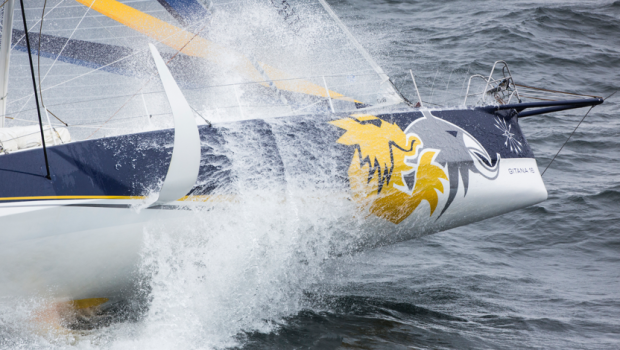

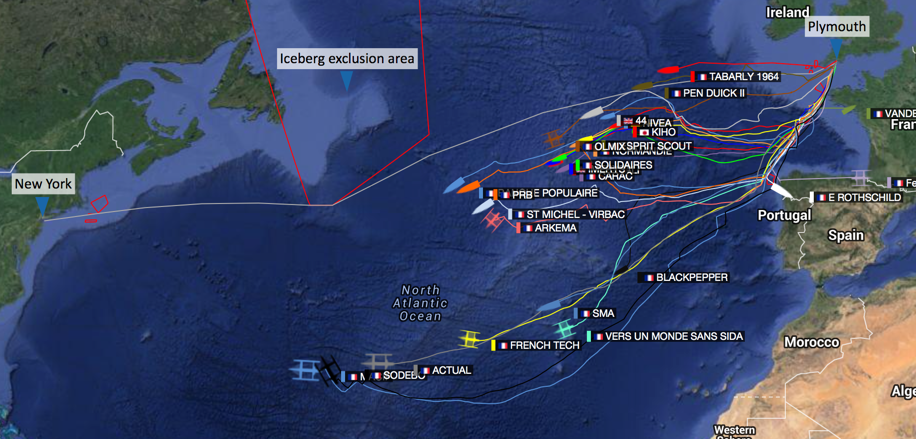
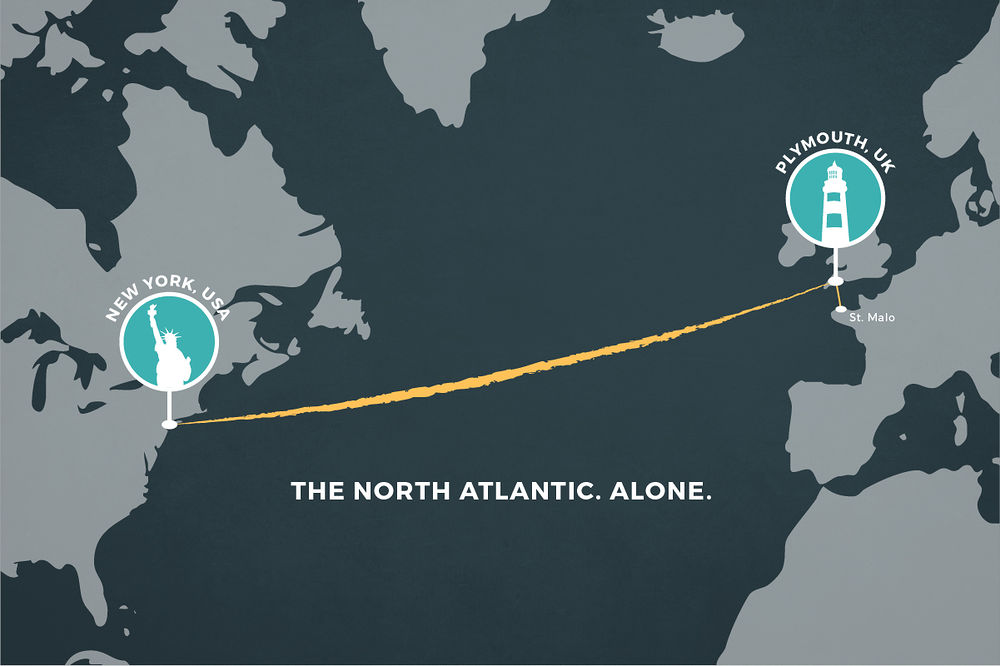

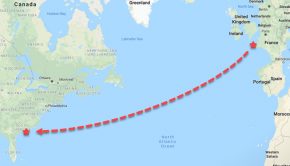
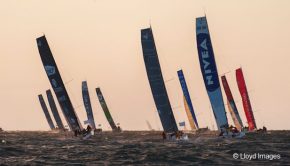
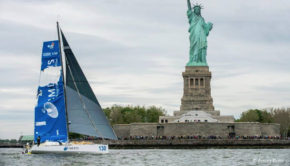
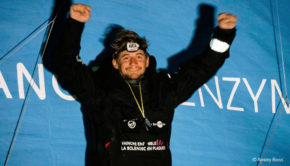
 We’ll keep your information safe.
We’ll keep your information safe.